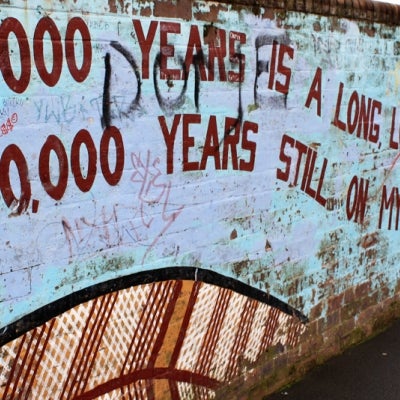Refine results
-
14 December 2012Book page
Summary of outcomes of discussion at Kirribilli House 27 October 2009
There was a clear consensus about the critical nature of the issue of universal design. 'Universal' means designing Australian homes to meet the changing needs of their occupants across their lifetimes. -
14 December 2012Book page
Community Partnerships for Human Rights program
The Australian Human Rights Commission's Community Partnerships for Human Rights (CPHR) program has one central goal: to increase social inclusion and counter discrimination and intolerance towards Australia’s Muslim communities. -
Aboriginal and Torres Strait Islander Social Justice11 March 2021Speech
June Oscar's IWD Speech for Children's Ground
Yaningi warangira ngindaji yuwa muwayi ingirranggu, Bunuba yani U. I acknowledge all the traditional countries that we gather on today, and pay my respects to our elders everywhere, past, present and emerging. Happy International Women’s Week 2021! I really thank Jane and all the team, children and families of Children’s Ground for designing this event, and recognising the vital importance… -
Rights and Freedoms18 May 2017Publication
OPCAT in Australia Consultation Paper (2017)
OPCAT in Australia Consultation Paper MAY 2017 Table of Contents 1 Introduction 2 What is OPCAT? 2.1 National Preventive Mechanism 2.2 Sub-committee on the Prevention of Torture 3 The NPM model 4 Key issues for consideration 4.1 Stocktake of places of detention 4.2 Definitional issues – what does OPCAT cover? 4.3 Progressive implementation of OPCAT 4.4 Scope of the role of the NPM 4.5… -
14 December 2012Book page
RESPONSE TO THE DISCUSSION PAPER: LIVING WILLS: OPGNSW
The Public Guardian of New South Wales is the legal guardian of over 1300 people with decision making disabilities. Of these approximately 150 have a diagnosed mental illness. The arrival of the commission's discussion paper on living wills is therefore a welcome opportunity to consider the issue of living wills and people with an incapacity to make decisions. -
14 December 2012Book page
Community Partnerships for Human Rights: What projects are we doing?
In 2006 the Ministerial Council on Immigration and Multicultural Affairs endorsed the National Action Plan to Build on Social Cohesion, Harmony and Security. As part of the National Action Plan, the Commission was one of seven Commonwealth agencies funded to undertake a range of projects. -
14 December 2012Book page
Bringing them Home - Chapter 26
An entrenched pattern of disadvantage and dispossession continues to wreak havoc and destruction in Indigenous families and communities. This situation has been described in the preceding chapters of this Part. State and Territory legislation, policy and practice in the areas of child welfare, care and protection, adoption and juvenile justice do not comply with the evaluation criteria… -
Legal14 December 2012Webpage
Re: Bernadette (2008)
1.1 On 7 March 2006, the Family Court of Australia granted leave to the Human Rights and Equal Opportunity Commission (HREOC) to intervene in these proceedings pursuant to s 92 of the Family Law Act 1975 (Cth) (‘Family Law Act’). -
Commission – General14 December 2012Speech
Australian Red Cross National Conference
I wish to start today by acknowledging the traditional owners of the land on which we are meeting. On behalf of the Australian Human Rights Commission, I pay my respects to their elders past and present. -
Legal14 December 2012Webpage
National Security Information Legislation Amendment Bill 2005
At the hearing held 13 April 2005, the Commission took a number of questions on notice. I am advised that the answers to the Honourable Senators’ questions are as set out below. -
Commission – General14 December 2012Speech
President speeches: The influence of human rights on judicial decision-making
May I acknowledge the Gadigal people of the Eora nation, the traditional owners of the land upon which we meet, and pay my respect to their elders past and present. -
Aboriginal and Torres Strait Islander Social Justice1 August 2022Speech
Garma Festival
Jalangurru lanygu balangarri. Yaningi Yatharra ngindaji muwayi indirranggu, Gumatj, Yolngu yani U. Galwurruy and your family thank you for hosting us. I pay my respects to all Yolŋu people and the Gumatj people of this land, and all the clan groups of Arnhem land and surrounds. My deepest respects to your elder’s past, present and emerging. A huge congratulations to the Yothu Yindi… -
Aboriginal and Torres Strait Islander Social Justice8 May 2014Project

The Declaration dialogues
If we are serious about implementing the Declaration on the Rights of Indigenous Peoples, an overarching policy framework based on human rights standards is essential to ensuring a holistic approach that addresses the needs and priorities identified by Aboriginal and Torres Strait Islander peoples and communities. A national conversation progressed through a series of dialogues was conducted… -
Disability Rights14 December 2012Webpage
Wheelchair Accessible Taxi Inquiry report
Summary and recommendations Introduction Disability Standards for Accessible Public Transport Focus on response times Consumer experiences Private arrangements outside booking systems Setting and monitoring of performance standards Proportions of accessible taxis in fleets Proportion of WATs to WAT users Other factors affecting adequacy of service Relationship of fleet proportions to service… -
14 December 2012Book page
NATIONAL EMPLOYMENT INITIATIVES FOR PEOPLE WITH DISABILITIES
The discussion paper was commissioned by my predecessor, Dr Blewett, as part of the Federal Government's disability reform agenda. Prepared by Ms Chris Ronalds, with assistance from the Labour Research Centre, the paper addresses the following issues: -
14 December 2012Book page
Chapter 2 - Introduction: Social Justice Report 2009
Indigenous imprisonment rates in Australia are unacceptably high. Nationally, Indigenous adults are 13 times more likely to be imprisoned than non-Indigenous people[1] and Indigenous juveniles are 28 times more likely to be placed in juvenile detention than their non-Indigenous counterparts.[2] -
Commission – General14 December 2012Speech
The Death Penalty - a matter of principle
It is almost 40 years since the last man was hanged in Australia. Today, the death penalty has been abolished in every Australian jurisdiction. Opposition to the death penalty attracts bi-partisan political support. Yet in a region where many of our closest neighbours still maintain the death penalty, I believe Australia can - and should - take a stronger stand against state sanctioned execution. -
Asylum Seekers and Refugees15 June 2021Publication

Management of COVID-19 risks in immigration detention (2021)
Learn how COVID-19 is a threat to people held in immigration detention, as the virus can spread quickly in enclosed, confined spaces such as detention -
Aboriginal and Torres Strait Islander Social Justice29 October 2013Speech
Policing Partnerships: How Justice Reinvestment works with Aboriginal communities
NSW Police Seminar, University of Western Sydney -
Legal14 December 2012Webpage
Submission - ‘Towards An Alternative Settlement Framework For Native Title’ (2006)
I welcome the Western Australian Government’s commitment to developing an Alternative Settlement Framework to resolve native title claims, following the standards of recognition and extinguishment set by the Yorta Yorta1 and Miriuwung Gajerrong2 decisions, respectively. I also note the Government’s commitment to a fair and just relationship between the Government and Aboriginal people…
Pagination
- First page « First
- Previous page ‹ Previous
- …
- 24
- 25
- 26
- 27
- Current page 28
- 29
- 30
- 31
- 32
- …
- Next page Next ›
- Last page Last »
